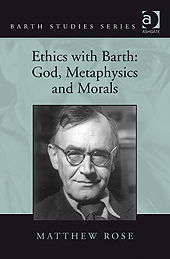I have been asked to write a commentary on James 1 for a new project entitled the Global Bible Commentary. So this new series on James chapter 1 will help me prepare for that. I hope you find my reflections on James helpful, and I especially invite your critical comments and homiletical reflections, in order to improve mine.
write a commentary on James 1 for a new project entitled the Global Bible Commentary. So this new series on James chapter 1 will help me prepare for that. I hope you find my reflections on James helpful, and I especially invite your critical comments and homiletical reflections, in order to improve mine.
*****
I want to begin with a question – who wrote the epistle attributed to James? What can we know about James?
The letter of James begins with the identification of the author simply as “James,” further described in general terms as a servant of God and of the Lord Jesus Christ. Evidently this particular James was sufficiently well known to his readers as not to require further identification. Who then, was this James? The New Testament refers to a number of people bearing this name: James the son of Zebedee and brother of John who was martyred by Herod (see Acts 12:2), James the son of Alphaeus who was one of the twelve (Matthew 10:3), James the brother of Jesus (Mark 6:3), James the Less whose mother Mary was present at the crucifixion of Jesus (Mark 15:40), James the father of Judas who was also one of the twelve, and to be distinguished from Judas Iscariot (Luke 6:16; Acts 1:13), James the brother of Jude (Jude 1), and finally, James, the author of our letter. Robert Wall contends that most scholars believe that the best candidate for James-the-letter-writer is James the brother of Jesus (545). Duling and Perrin contend precisely the opposite, arguing that most scholars believe the work to be pseudonymous, although undoubtedly referring to this particular James (482; cf. the table in Davids, 4). A number of recent evangelical commentators have analysed the various arguments against the traditional idea that the author is in fact James the brother of Jesus, and have concluded that the arguments are less than convincing, and that consequently there is no good reason to reject the traditional view.
The main arguments against the traditional view are:
a) The Greek of the letter is too sophisticated for a working-class Jew from Galilee. This argument ignores the degree of interaction between Jews and Greeks in Galilee in the period when James was a child, as well as the testimony of Acts which portrays the church in Jerusalem as composed of both Hebrew and Greek-speaking believers, and James as one who cites the Septuagint in Acts 15:17-18.
b) The James we see in Acts is so Jewish and so conservatively so, he could not possibly be the author of this letter. It is true that Acts 21:15-26 portrays James as one “zealous for the Law,” and who makes a distinction between Jewish and gentile Christians. Yet the Letter of James is also thoroughly Jewish in its style, orientation and world of thought. The James of the letter is concerned for the purity of the people (1:27; 3:17), their faithful observance of the Law (1:25; 2:8, 10-12; 4:11-12), the plight of the poor (1:27 – 2:17)—all consonant with the picture of James found in Acts and Galatians 2.
c) The section on faith and works in chapter two must be understood as a reaction to central themes in Paul’s writings which only entered into wider circulation in the late first century—well after the time of James’ death in 62. While it may be true that Paul’s writings were only distributed in this later period, his ideas were certainly in circulation much earlier, and were, in fact, a major issue at the council held in Jerusalem in Acts 15. Some scholars, therefore, argue that rather than indicating a late composition, this theme in James indicates early composition. James is reacting, not so much to Paul’s more formal statements contained in his letters, but to erroneous applications of his ideas amongst the congregations he is writing to, in the early period of Paul’s ministry, and before the Jerusalem council which is not mentioned in letter. Thus, these scholars argue for a date in the mid to late forties, making James one of the earliest books of the New Testament. (See, for example, Carson, Moo & Morris, 410-413; McKnight, 13-38; Moo, 19-30; Vlachos, 3-5.)
This is not to suggest that the arguments for the traditional position are necessarily persuasive. Scot McKnight, for example, accepts the traditional view as the best option, but notes that it hardly compelling, and thus not something to be overly dogmatic about (37). Davids agrees. Although there is evidence for an early date, it is not conclusive. Thus he suggests that the core material of the letter originates with James-the-brother-of-Jesus, but was edited later, perhaps after James’ death, as the church became more gentile in its composition and location (21-22). This view, of course, sees James as a later composition.
If we accept the traditional view, what can we know of James, the Lord’s brother? Mark’s account suggests that Jesus was the eldest of five brothers (James, Joses, Judas and Simon), and that he had at least two sisters. If Mark’s order of the brothers is chronological, James would have been the next after Jesus. We know also that in the earlier days of Jesus’ ministry James and his other brothers did not believe in Jesus (John 7:1-5), and in fact, thought that he was not in full command of his faculties (Mark 3:20-21; cf. 31-35). Yet Luke notes that Jesus’ brothers—including James, we suppose—were part of the company that met “with one mind … continually devoting themselves to prayer” in the upper room after the ascension of Jesus (Acts 1:14). What had happened to turn their unbelief? We find a clue to the answer in the words of Paul in 1 Corinthians 15: “then he appeared to James, then to all the apostles” (v. 7). I grew up in a family of six boys, often at strife with one another, and I can only imagine some of the things James may have said to his elder brother! Yet in an act of grace as much human as divine, the resurrected Jesus appeared to James, and, although we have no record of what transpired at that meeting, its impact on James evidently was immediate and lasting. Some years later when Paul wrote to the Galatians he mentions James of one of those who “were of reputation” in Jerusalem, and names James ahead of Cephas (Peter) and John as those reputed to be “pillars” in the church (Galatians 2:2, 9). That James appears to be the leader of the church in Jerusalem is affirmed again a few verses later when Paul speaks of “the coming of certain men from James” (v. 12).
Further testimony to James’ growing stature in the Christian community at Jerusalem is seen in Acts. After Peter’s miraculous release from prison he went to a house where believers had gathered in prayer. After assuring them of his safety he instructs the gathered believers to “report these things to James and the brethren” (12:17). In chapter fifteen James appears as the head of the church in Jerusalem, likely Peter’s successor after the latter’s escape from prison and subsequent “disappearance.” James sums up the proceedings of the meeting and his recommendation, framed theologically according to Scripture, is accepted by all those present. We hear of James once more in Luke’s account when Paul, during his final trip to Jerusalem, went in with the brethren “to James, and all the elders were present” (Acts 21:17-18).
One final question here concerns what became of James. The ancient church historian, Eusebius, records two early traditions concerning the death of James (see especially Church History book II, chapter 23). The traditions, deriving from Hegesippus and Josephus, indicate that James was known as James-the-Just, a righteous and prayerful man held in esteem by both Christian and non-Christian Jews. According to Eusebius, James was accused to Ananus the high priest and consequently executed as a martyr in 61 or 62BCE.
In the book of James, then, we have Christian testimony from the earliest days of the church, by one who we think was the very brother of Jesus, a man of holy and widespread reputation, one who gave his life as a martyr, another “of whom the world was not worthy,” and thus now acknowledged as a hero of the faith, who, “though dead, yet speaks” (see Hebrews 11:4, 38). We do well, therefore, to give our very best attention to his message.





 These six little cygnets showed up in the pond outside our window this morning.
These six little cygnets showed up in the pond outside our window this morning.